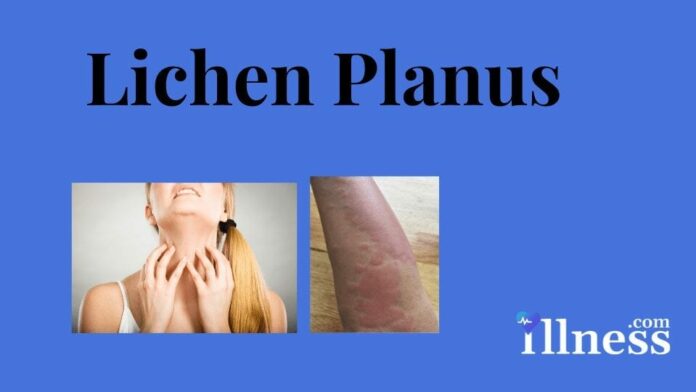Overview Of Lichen Planus
Lichen Planus, a condition that forms a very itchy rash, can appear on the skin or in the mouth.
Commonly Associated With
Zambusch’s Disease; Lichen Ruber Planus
Causes Of Lichen Planus
Although the exact cause of lichen planus is unknown, it may be related to an allergic or immune reaction.
Risks for the condition include:
- Exposure to certain medicines, dyes, and other chemicals (this may include gold, antibiotics, arsenic, iodides, chloroquine, quinacrine, quinide, phenothiazines, and diuretics).
- Diseases such as hepatitis C.
- This condition mostly affects middle-aged adults. It is less common in children.
Symptoms Of Lichen Planus
Mouth sores are one symptom of this condition. They:
- Maybe tender or painful (mild cases may not cause pain).
- Are located on the sides of the tongue, inside of the cheek, or on the gums.
- Appear as bluish-white spots or pimples.
- Form lines in a lacy network.
- Gradually increase in size.
- Sometimes form painful ulcers.
Skin sores are another symptom of lichen planus. They:
- Usually appear on the inner wrist, legs, torso, or genitals.
- Are extremely itchy.
- Have even sides (symmetrical) and sharp borders.
- Occur alone or in clusters, often at the site of a skin injury.
- It May be covered with thin white streaks or scratch marks.
- Are shiny or scaly-looking.
- Have a dark, violet color.
- May develop blisters or ulcers.
Other symptoms of lichen planus are:
- Dry mouth.
- Hair loss.
- Metallic taste in the mouth.
- Ridges in the nails.
Exams & Tests
Your health care provider may make the diagnosis based on the appearance of your skin or mouth lesions.
A skin lesion biopsy or biopsy of a mouth lesion can confirm the diagnosis.
Treatment Of Lichen Planus
The goal of treatment is to reduce symptoms and speed healing. If your symptoms are mild, you may not need treatment.
Treatments may include:
- Antihistamines.
- Medicines that calm down the immune system (in severe cases).
- Lidocaine mouthwashes to numb the area and make eating more comfortable (for mouth sores).
- Topical corticosteroids or oral corticosteroids to reduce swelling and lower immune responses.
- Corticosteroid shots into a sore.
- Vitamin A as a cream or taken by mouth.
- Other medicines that are applied to the skin.
- Dressings placed over your skin with medicines to keep you from scratching.
- Ultraviolet light therapy.



